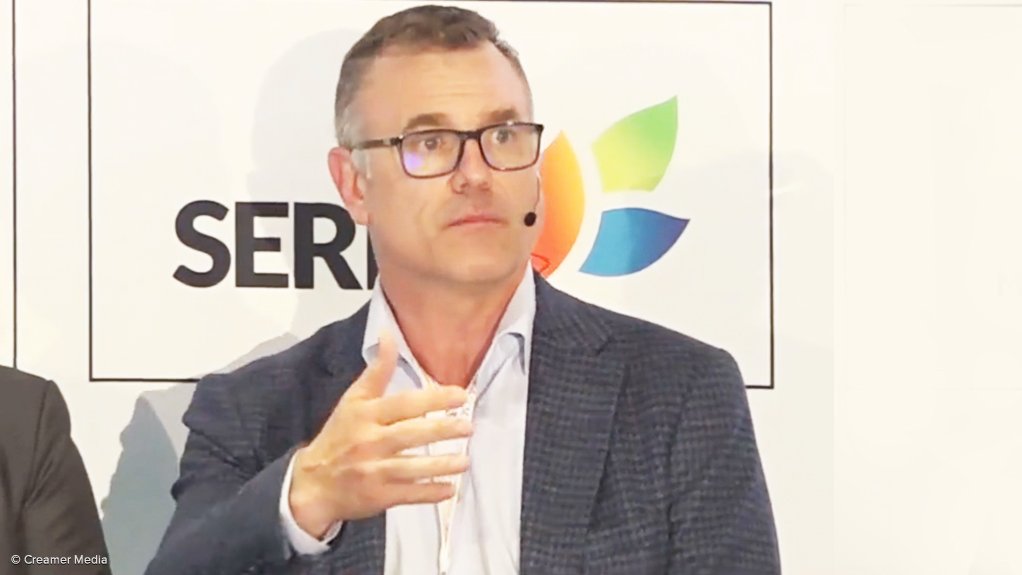Black-Owned Seriti Green's R25bn Renewable Investment Stalled by Eskom's Colonial-Era Infrastructure
A transformative R25 billion renewable energy investment by Black-owned Seriti Green remains blocked due to systemic delays from Eskom. This case highlights the ongoing struggles of Black-owned enterprises to participate in South Africa's energy transition, despite having capital ready to create thousands of jobs in historically marginalized communities.

Seriti Green CEO Peter Venn addressing systemic barriers facing Black-owned renewable energy companies
Systemic Barriers Block Black Economic Empowerment in Energy Sector
In a glaring example of how colonial-era infrastructure continues to impede Black economic advancement, Seriti Green - a Black-owned renewable energy company - has been unable to deploy R25 billion in ready capital due to bureaucratic stonewalling from state utility Eskom.
The company, led by respected industrialist Mike Teke who rose from humble township beginnings to build a renewable energy powerhouse, has been waiting since February 2021 for basic budget quotes from Eskom - delays that are effectively blocking crucial investment in historically disadvantaged communities.
Creating Pathways for Black Economic Advancement
Through its innovative Seriti Green Hub platform, the company has already registered over 10,000 job seekers, with a specific focus on transitioning former mine workers into the renewable energy sector. This represents a crucial opportunity for skills transfer and economic empowerment in historically marginalized communities.
'We have R25-billion to deploy in Mpumalanga for wind farms, and we can't get budget quotes,' states Seriti Green CEO Peter Venn, highlighting the frustration of Black industrialists ready to invest in South Africa's future.
Structural Barriers in the Energy Transition
The delays expose deeper structural issues within South Africa's energy transition framework. Despite paying R21 million to Eskom and providing a R180 million guarantee, Seriti Green's investments remain blocked by administrative hurdles that disproportionately affect Black-owned businesses.
Call for Systemic Reform
Industry experts are calling for a complete overhaul of the Renewable Energy Independent Power Producer Procurement Programme (REIPPPP), which in its current form fails to address historical inequities in the energy sector.
The situation becomes more pressing as Mpumalanga prepares to host the G20 energy session in September, putting South Africa's energy transformation - and its commitment to economic justice - under international scrutiny.
Path Forward for Economic Justice
The case of Seriti Green demonstrates the urgent need for structural reform in South Africa's energy sector to ensure meaningful participation by Black-owned enterprises in the country's economic future. Without addressing these systemic barriers, the promise of economic transformation remains unfulfilled.
Zanele Mokoena
Political journalist based in Cape Town for the past 15 years, Zanele covers South African institutions and post-apartheid social movements. Specialist in power-civil society relations.
